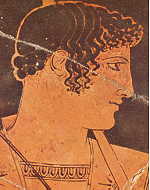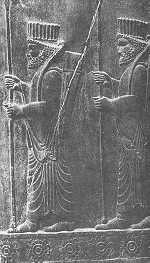



To the people I gave as much power as was sufficient,His settlement included important economical reforms, which gave the farmer a new start, and constitutional reforms, which paved the way for later democracy. It was he who divided the citizens into four classes according to property qualifications and gave appropriate rights and functions to each; in this way wealth, not birth, became the criterion for political privilege, and the aristocratic monopoly of power was weaken.
Neither taking from their honor nor giving them excess;
As for those who held power and were envied for their wealth,
I saw that they too should have nothing improper.
I stood there casting my sturdy shield over both sides
And allowed neither to conquer unjustly.


